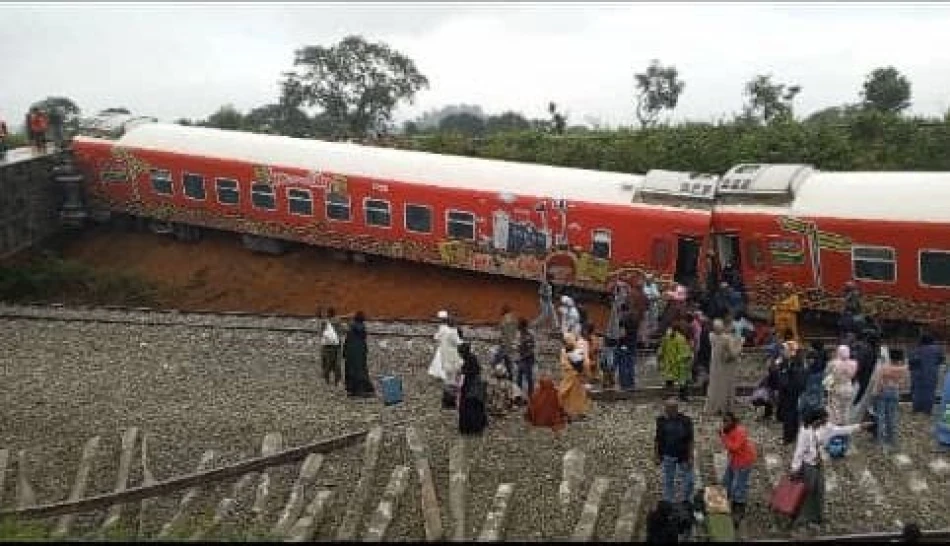
Train Derailment in Nigeria Leaves Passengers Injured
Nigeria's Abuja-Kaduna Railway Faces Another Safety Crisis as Train Derails, Injuring Seven
A passenger train traveling from Nigeria's capital Abuja to the northern city of Kaduna derailed Tuesday morning, injuring seven people and highlighting persistent safety concerns on one of the country's most strategically important railway lines. The incident marks another setback for Nigeria's ambitious rail modernization efforts, which have been plagued by security threats and infrastructure challenges since operations began.
The Incident: Third Major Disruption in Two Years
The derailment occurred around 11:00 AM local time between Kubwa and Asham stations, just north of Abuja. Social media footage showed at least three train cars overturned on the ground, though Nigerian Railway Corporation spokesman Yakub Mahmud confirmed no fatalities occurred.
The National Emergency Management Agency (NEMA) reported that seven passengers sustained injuries of varying severity and received immediate first aid before being transported to nearby hospitals. Emergency services, medical crews, and surrounding hospitals coordinated the response, with the railway company working to safely return all passengers to Abuja.
A Troubled Route with Strategic Importance
The 186-kilometer Abuja-Kaduna railway line represents a cornerstone of Nigeria's infrastructure modernization strategy, connecting the federal capital with the economically vital northern regions. Built with Chinese financing and expertise as part of broader Belt and Road Initiative projects across Africa, the line was designed to ease road traffic congestion and boost economic connectivity.
However, the route has experienced repeated disruptions since becoming operational. Most notably, armed groups attacked a train on this same line in March 2022, kidnapping over 60 passengers in an incident that suspended operations for months and exposed serious security vulnerabilities in Nigeria's transport infrastructure.
Infrastructure Challenges Across Nigeria's Rail Network
Tuesday's derailment reflects broader systemic issues facing Nigeria's railway expansion. Unlike successful rail modernization programs in countries like Ethiopia or Kenya, Nigeria's projects have struggled with maintenance standards, security protocols, and operational consistency.
The repeated incidents raise questions about track maintenance, safety inspections, and operational procedures on Chinese-built infrastructure. While China has successfully delivered railway projects across multiple African countries, the Nigerian experience suggests that technology transfer and local capacity building remain incomplete.
Economic and Political Implications
For Nigeria's government, railway safety failures carry significant political costs. President Bola Tinubu's administration has prioritized infrastructure development as key to economic diversification away from oil dependency. However, public confidence in major transport projects erodes with each incident, potentially complicating future infrastructure financing and implementation.
The economic impact extends beyond immediate disruption. Businesses and travelers who depend on reliable rail connections may revert to road transport, increasing logistics costs and travel times. This undermines the fundamental economic rationale for railway investment in Africa's most populous country.
Looking Forward: Safety Protocols Under Scrutiny
This latest derailment will likely prompt renewed scrutiny of safety protocols and maintenance standards across Nigeria's expanding rail network. International development partners and Chinese contractors may face pressure to demonstrate improved safety measures and local capacity building.
The incident also highlights the complex challenges facing infrastructure development in emerging markets, where ambitious modernization projects must navigate security threats, maintenance capacity constraints, and operational learning curves that developed countries resolved decades ago.
Most Viewed News

 Layla Al Mansoori
Layla Al Mansoori






